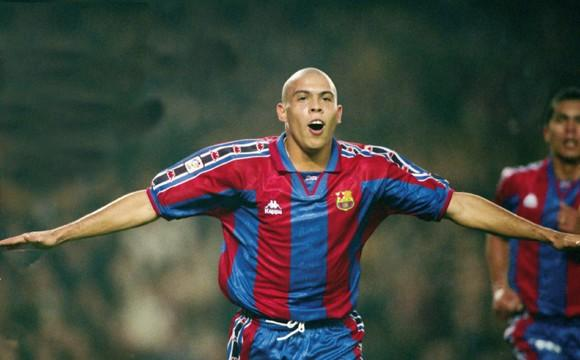
Introduction
Ronaldo Nazário, often referred to simply as Ronaldo, is hailed as one of the greatest football players of all time. His extraordinary career has left a lasting impact on the sport and inspired countless young athletes worldwide. With a blend of remarkable skill, tactical intelligence, and explosive speed, Ronaldo’s style of play captivated fans and established his reputation as a goal-scoring phenomenon. As football continues to evolve, Ronaldo’s legacy is a significant reference point for aspiring players and fans alike.
Career Highlights
Born on September 18, 1976, in Rio de Janeiro, Brazil, Ronaldo began his professional career at the young age of 16 with Cruzeiro. His talent quickly caught the attention of European clubs, leading him to plying his trade for PSV Eindhoven in the Netherlands. Here, he showcased his incredible goal-scoring ability before moving to Barcelona in 1996. His short time at the Catalan club was highlighted by an impressive 47 goals in 49 matches, leading to a swift transfer to Inter Milan.
During his time with Inter, Ronaldo faced significant challenges, including a serious knee injury that could have ended many careers. However, he returned to form, and in 2002, he led Brazil to win the FIFA World Cup, becoming the tournament’s top scorer with eight goals. His outstanding performance earned him the FIFA World Player of the Year award twice, an accolade he would eventually claim three times throughout his career.
Transition and Impact
Ronaldo’s journey took him to Real Madrid in 2002, where he formed part of the iconic ‘Galacticos’ alongside other football legends. His time at Madrid saw him continue to break records and solidify his status as one of the most prolific goal scorers in football history. Ronaldo wrapped up his illustrious club career at AC Milan before announcing his retirement in 2011.
Off the pitch, Ronaldo has had a significant impact through various charitable endeavours and business ventures, including his role as a football club owner. His influence extends beyond statistics and trophies; he has become an ambassador for the sport and a source of inspiration for millions.
Conclusion
As football continues to develop and attract new talent, the legacy of Ronaldo Nazário serves as a reminder of the potential that exists in the game. His ability to overcome adversity, combined with his unparalleled skill, ensures that he remains a central figure in football history. For fans and future generations, Ronaldo Nazário is not just a player; he is a symbol of perseverance and excellence in the beautiful game.
You may also like

The Rise and Recent Developments of Paris Saint-Germain F.C.

Barcelona vs Rivals: Understanding the Historic Football Rivalry

Everything You Need to Know About the Conference League
SEARCH
LAST NEWS
- Remembering Wendy Richard: The Promise to Co-Star Natalie Cassidy
- How Did Anglian Water Achieve an ‘Essentials’ Rating for Mental Health Accessibility?
- Shai Hope Leads West Indies in T20 World Cup Clash Against South Africa
- What We Know About Weston McKennie: Future at Juventus and Past at Leeds
- What We Know About the Upcoming Live Nation Antitrust Trial